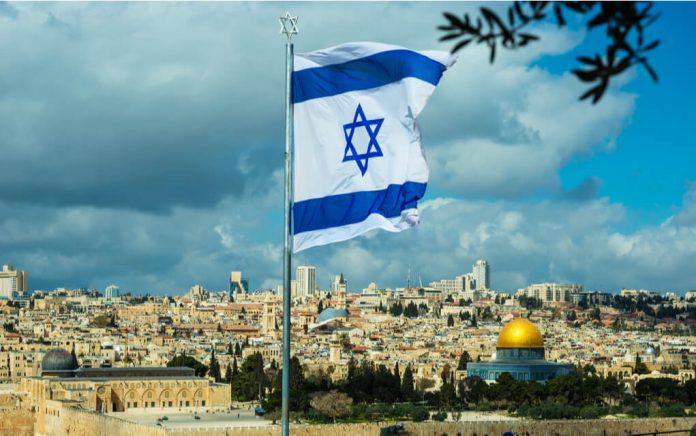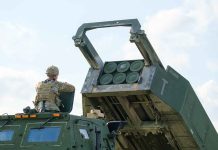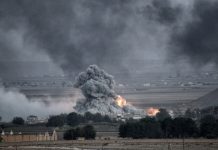
Israel’s bold assassination of Hezbollah leader Hassan Nasrallah shatters diplomatic illusions, exposing the futility of negotiating with terrorists.
At a Glance
- Israel successfully assassinated Hezbollah leader Hassan Nasrallah, marking a shift towards aggressive counter-terrorism
- The operation has significantly weakened Hezbollah by decimating its leadership and missile capabilities
- Israel’s actions challenge U.S. and Western strategies favoring diplomacy over military action
- Concerns arise about potential retaliation from Iran and its proxies
- The assassination could alter the balance of power in the Middle East
Israel’s Decisive Action Against Hezbollah
In a stunning display of military precision and strategic resolve, Israel has successfully eliminated Hezbollah leader Hassan Nasrallah. This bold move marks a significant shift in Israel’s approach to combating terrorist threats, prioritizing decisive action over futile diplomatic gestures. The operation not only decimated Hezbollah’s leadership but also dealt a severe blow to its missile capabilities, demonstrating Israel’s commitment to ensuring its national security at all costs.
The assassination of Nasrallah sends a clear message to terrorist organizations and their state sponsors: Israel will no longer tolerate threats to its existence. This operation reflects a much-needed change in strategy, moving away from the ineffective appeasement policies often championed by Western nations and embracing a more robust approach to dealing with implacable foes.
The temporary ceasefire is between the government of Israel and “the government of Lebanon.”
There is no government of Lebanon. No mention here of Hezbollah or Hamas. https://t.co/Hu0w3L4Ssv pic.twitter.com/DGzNiZgcb1
— Mark Dubowitz (@mdubowitz) September 26, 2024
Challenging the Status Quo of Middle East Diplomacy
Israel’s decisive action against Hezbollah represents a direct challenge to the long-standing U.S. and Western strategies in the Middle East, which have often favored diplomacy over military action. While diplomacy has its place, history has shown that negotiating with terrorist organizations like Hezbollah and Hamas rarely yields lasting peace. Israel’s operation exposes the naivety of those who believe that ceasefire agreements with such groups can lead to genuine stability.
The Biden administration’s reluctance to support a full-scale Israeli military campaign against Hezbollah and Hamas has been a point of contention. This hesitation reflects a fundamental misunderstanding of the nature of these terrorist organizations and the threat they pose not only to Israel but to regional stability as a whole. Israel’s unilateral action demonstrates that it will not wait for permission to defend its citizens and interests.
Potential Ramifications and Future Outlook
While Israel’s operation has been praised for its intelligence and military precision, there are legitimate concerns about potential retaliation from Iran and its proxies. However, this risk must be weighed against the long-term benefits of dismantling terrorist infrastructure and leadership. The assassination of Nasrallah is viewed as a major breakthrough, potentially altering the balance of power in the region in favor of stability and peace.
The operation has been compared to the Abraham Accords in terms of its potential impact on Middle Eastern peace. By demonstrating the consequences of continued aggression against Israel, this action may encourage other regional actors to reconsider their stance and pursue more constructive relationships. It sends a clear message that the path to peace lies not through threats and violence, but through recognition of Israel’s right to exist and genuine efforts at coexistence.
A Call for Resolute Support
As conservatives, we must stand firmly behind Israel’s right to defend itself against existential threats. The success of this operation highlights the effectiveness of a strong, proactive approach to national security. It’s time for the U.S. to fully support our closest ally in the Middle East, abandoning the failed policies of appeasement and embracing a strategy that prioritizes the elimination of terrorist threats.
The assassination of Hassan Nasrallah marks a turning point in the fight against terrorism in the Middle East. It’s a reminder that peace through strength is not just a slogan, but a viable and necessary strategy in dealing with implacable foes. As the region grapples with the aftermath of this bold action, one thing is clear: the old rules of engagement no longer apply, and those who threaten peace and stability will face swift and decisive consequences.






















